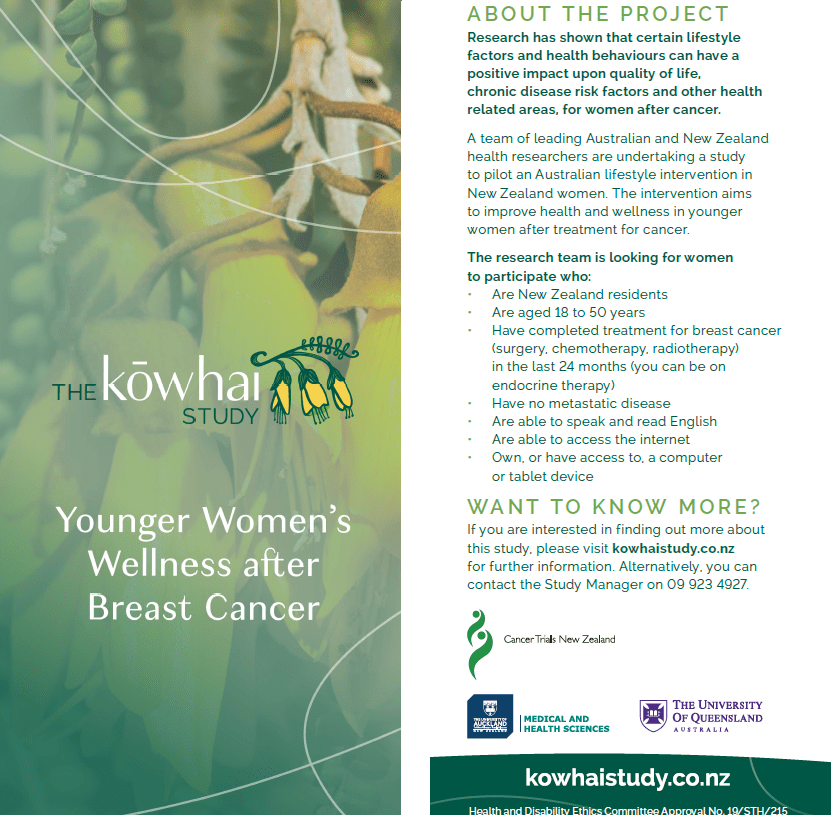Kōwhai |
* This study has finished * |
| Full title: | Kōwhai – Younger Women’s Wellness Program After Breast Cancer – Feasibility Study |
| Cancer type: | Breast |
| Status: | Closed |
|
Brief description:
|
Younger women (< 50 years) treated for cancer represent a growing population in New Zealand. While the treatment outcomes of this cohort have improved, they are at an increased risk of developing treatment-related chronic disease such as diabetes and obesity. The Younger Women’s Wellness after Cancer Program (YWWACP) is a whole-of-lifestyle intervention that enables younger women to self-manage their chronic disease risk. It promotes physical activity, optimal diet, smoking cessation, alcohol reduction, as well as strategies for sleep, stress, sexual wellbeing and menopausal symptom management based on the latest evidence. Developed and piloted in Australia, the original YWWACP has been adapted to meet the expressed needs of Māori, Asian and NZ European women. We propose to test the revised YWWACP and trial design for feasibility in a representative sample of younger New Zealand women treated for breast cancer, prior to undertaking a national randomised controlled trial. Objectives of this feasibility study are:
|
| Sites: | University of Auckland |
| Website: | https://www.dawncomplete.org.au/our-programs/younger-womens-wellness-after-cancer/ |
| Lead Investigator: | Professor Alexandra McCarthy |
| Contact: | Sarah Benge (s.benge@auckland.ac.nz) |
| Sponsor: | University of Auckland |
| Funder: | Health Research Council (Feasibility) |
| Trial Registry reference: | ACTRN12620000260921 |
| Ethics number: | 19/STH/215 |
| Publications: | Sharples K, Vear NK, Porter-Steele J, Anderson D, Moeke-Maxwell T, Laing BB, Young L, Bailey TG, Benge S, Huang Y, Crowley E, Day R, Cartwright R, Findlay M, Porter D, Kuper M, Campbell I, McCarthy AL. Protocol of trans-Tasman feasibility randomised controlled trial of the Younger Women’s Wellness After Breast Cancer (YWWACP) lifestyle intervention. Pilot and Feasibility Studies. 2022;8 Article number 165 https://doi.org/10.1186/s40814-022-01114-z |
